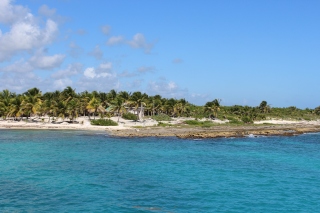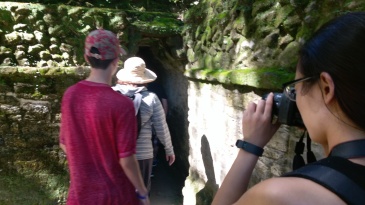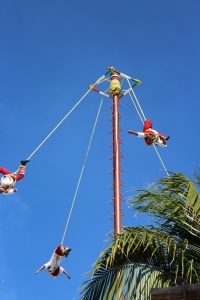I believe almost everyone has grown up with some notion of how to pack for travel. Be it a childhood sleepover, camping, or (as we’ll talk about here) a vacation.
When going on vacation, especially one involving airplane travel and security, packing your luggage can be an extremely important step. Taking measures to ensure your things don’t get lost or damaged can help put your mind at ease and no one wants to get stuck at the airport with extra costs or because their luggage doesn’t meet the airline’s guidelines.
On cruises, the baggage policy tends to be simply that if your baggage fits in your room you can bring it. (Although this may be tempting for all the heavy packers out there, just remember, the more luggage you bring the small your room becomes) However, almost every vacation will involve some sort of airplane travel. As many seasoned travelers know, THIS is where packing can get tricky and what we will be focusing on in this post.
First let’s discuss the difference between carry on and check in:
- Check in luggage
- Has size and weight restrictions
-
- Usually costs extra domestically but is free for 1 bag per person internationally
- Is stored elsewhere
- Carry on luggage
- Has size restrictions
- Usually has no extra cost
- Stays with you
Carry on is usually the best way to go fot shorter trips. Your luggage stays in sight, isn’t tossed around as much, and you don’t have to pay any extra cost. Check with your airline about their baggage policies when you begin packing and keep rechecking as these policies change constantly. Be sure to ask:
- How much you can travel with: size and weight limits for both carry on and check in
- How much it costs for check in luggage (it usually ranges from $25 to $40 per bag)
- What is allowed as a carry on: dimensions of the bag or suitcase
When you do begin packing the first 2 rules of thumb are:
“If you can’t replace it easily, don’t bring it” IE if you will be really upset that the airline lost the special shirt that yout wife bought for you don’t pack it.
“If you need something no matter what , keep it in your carry on.” IE Prescription medicine, glasses, contacts, anything that would be hard to replace where you are going makes this list. If you can hit a local drug store and replace it you are set but not something that you need scipts for. SIDENOTE: prescription meds MUST be in the original bottles with the labels attached. TSA types love to mess with this stuff and you don’t need the hassles and delays.
Remember that anything you take can get stolen, damaged, or simply forgotten and if it is irreplaceable, its best left at home. If it is something you need for the trip, like medication or a camera, keep it in a carry on. As mentioned before a carry on stays with you on the plane and is less likely to get lost, stolen, or damaged through your travels. If something does happen to your check in during airline travel, travel insurance will cover missing, lost, or stolen baggage up to a point. The airline will cover very little.
Other Tips for Packing:
- Get sturdy luggage
- Luggage gets thrown around, prepare for this as best you can. Buy sturdy luggage that is unlikely to be dented. We at On Site Travel actually recommend hard-sided plastic, it doesn’t dent. Strap down the contents inside and don’t put breakable items in a check in.
- Avoiding check in baggage is avoiding extra costs and extra headache
- Try to keep your baggage within carry on restrictions. If you can’t, all breakable and valuable items go in the carry on.
- Leave extra room for souvenirs
- Remember, you may buy things on your trip, and they will require extra baggage space. Account for that in advance so you aren’t surprised that your baggage no longer fits within airline policy on your way home. There are two ways to do this:
- If you’re allowed 2 carry ons, pack a smaller suitcase within a larger suitcase (suitcase-ception) on the plane ride over so that you can use smaller suitcase for souvenirs on the ride home
- Use an expandable suitcase (make sure that the expanded form is still within carry on limits) and make sure it isn’t expanded on the trip over. You can use the expansion space on the trip home to gain the extra room.
- If you buy something large while on vacation, ask about shipping options. If it can be shipped home you will not need to worry about fitting it in your luggage.
- Ask about laundry facilities where you are vacationing (be it a hotel or a cruise)
- If there are, you can pack less.
- NEVER USE VACUUM SEALING BAGS
- Although they save room, think about how much room they will take up after they are unsealed after the trip when you are repacking or even during a baggage check. Also, if one of them breaks your baggage can explode. All in all, not a good idea. If you have problems preserving room with clothing, I suggest looking into the KonMari folding method instead.
Happy Packing!
Hawaii Interesting Fact
A creole language in Hawaii spoken by many locals is known as Pidgin. It started on the sugarcane plantations as a way for the English-speaking plantation owners and Non-English speaking Hawaiian and foreign workers to communicate with each other. Pidgin is American English based but includes traces of Hawaiian, Portugese, Cantonese, Japanese, Korean, and Tagalog. In recent years a few local books, poems, and plays have even been written in the local dialect and a few popular works have even been translated to Pidgin. One popular example (available on amazon.com) is the Bible, or in Pidgin, Da Jesus Book.
image source: https://www.pexels.com/photo/travelling-travel-traveling-packing-30855/

 I’ve always liked the idea of visiting different places and exploring the world. The idea. When I actually start to think about cost, packing, airline travel, and being alone in a strange country trying to find my way to places I’ve never been I become rather anxious. This didn’t stop me from wanting to see the world by any means, but was I ever going to hop on a plane and go backpack around Europe? Certainly not. I eventually decided that in order for me to travel I would have to:
I’ve always liked the idea of visiting different places and exploring the world. The idea. When I actually start to think about cost, packing, airline travel, and being alone in a strange country trying to find my way to places I’ve never been I become rather anxious. This didn’t stop me from wanting to see the world by any means, but was I ever going to hop on a plane and go backpack around Europe? Certainly not. I eventually decided that in order for me to travel I would have to:

 Many of the shop keepers spoke English and most of the shops sold mementos for those visiting the country. There was even a demonstration of Danza de los Voladores, a ceremony were a group of men swing by their feet on top of a very high pole, being performed. We were always provided with a map of everything in the area before we stepped off the boat so I didn’t have to worry as much about getting lost or missing anything I may want to see. We stuck to the ports for the most part, which still made for a long and interesting day.
Many of the shop keepers spoke English and most of the shops sold mementos for those visiting the country. There was even a demonstration of Danza de los Voladores, a ceremony were a group of men swing by their feet on top of a very high pole, being performed. We were always provided with a map of everything in the area before we stepped off the boat so I didn’t have to worry as much about getting lost or missing anything I may want to see. We stuck to the ports for the most part, which still made for a long and interesting day. This was, all in all, a great experience. My anxieties about traveling were lessened and I got to spend a week relaxing and seeing new places. I am a pretty structured person and I like to know what is coming. Few surprises. If this describes you then maybe cruising or a resort destination may be the ideal for you. It is safe, inclusive, mostly structured and relaxing! Maybe we will do 2 weeks next time!!
This was, all in all, a great experience. My anxieties about traveling were lessened and I got to spend a week relaxing and seeing new places. I am a pretty structured person and I like to know what is coming. Few surprises. If this describes you then maybe cruising or a resort destination may be the ideal for you. It is safe, inclusive, mostly structured and relaxing! Maybe we will do 2 weeks next time!!